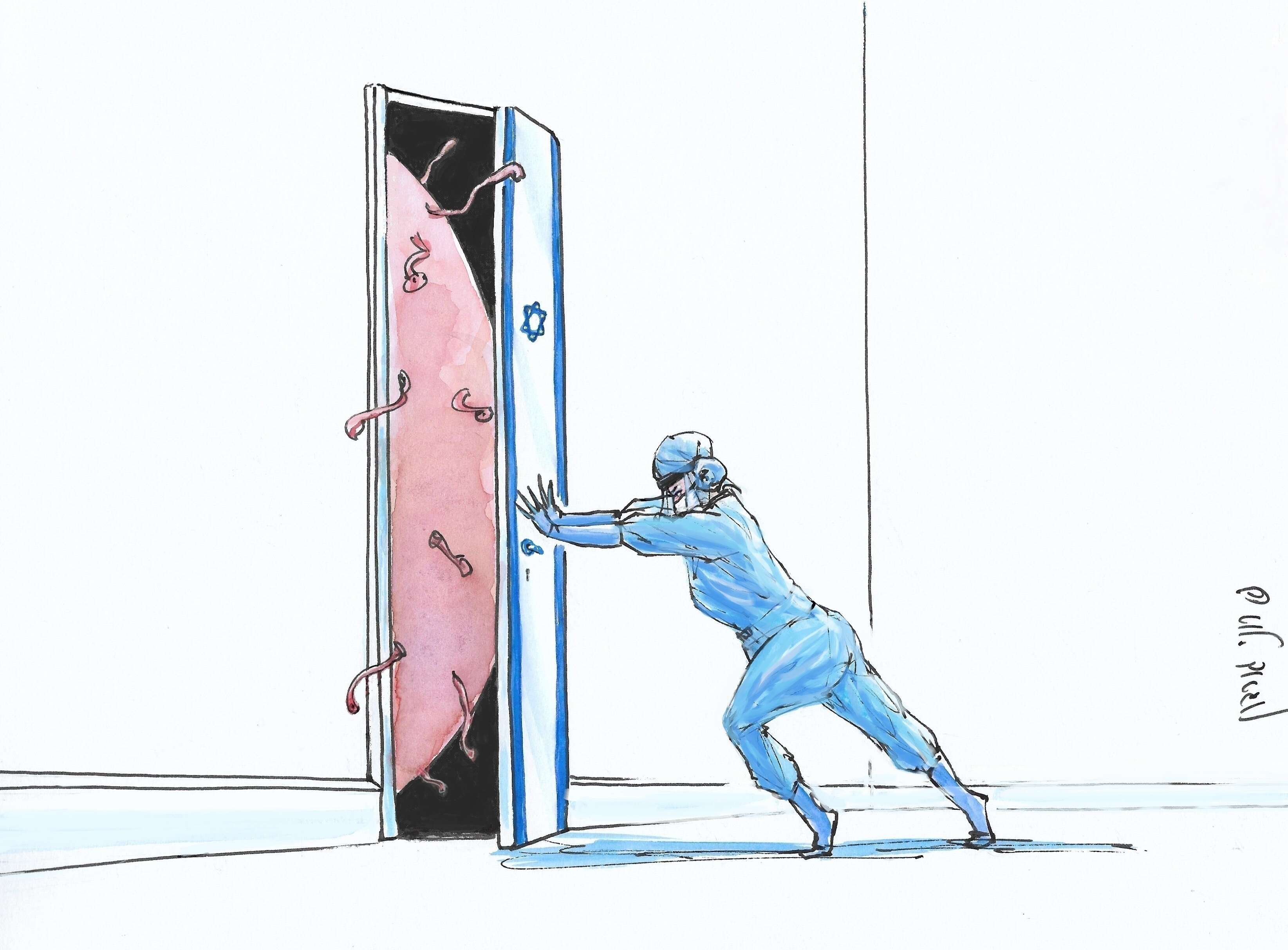Rattled World ‘at War’ With Coronavirus as Deaths Surge in Italy, France
Hundreds of millions of people faced a world turned upside down on Wednesday by unprecedented emergency measures against the coronavirus pandemic that is killing the old and vulnerable and threatening prolonged economic misery.Eli Lake: China’s Ghastly Blame Game
“This is a once-in-a-hundred-year type event,” said Australian Prime Minister Scott Morrison, warning the crisis could last six months as his nation became the latest to restrict gatherings and overseas travel.
The fast-spreading disease that jumped from animals to humans in China has now infected over 212,000 people and caused 8,700 deaths in 164 nations, triggering emergency lockdowns and injections of cash unseen since World War Two.
“We have never lived through anything like this,” Spain’s Prime Minister Pedro Sanchez told a parliament chamber nearly empty with more than 90% of lawmakers staying away and a masked and gloved cleaner wiping handrails between speeches.
“And our society, which had grown used to changes that expand our possibilities of knowledge, health and life, now finds itself at war to defend all we have taken for granted.”
There was particular alarm in Italy, which has experienced an unusually high death rate — nearly 3,000 from 35,713 cases. It has called on student and retired doctors to help an overwhelmed health service.
On Wednesday Italy reported 475 new deaths, the biggest increase since the outbreak started and the highest one-day total posted by any nation.
France also reported a spike in deaths — rising by 89, or 51%, to a total of 264 in 24 hours.
Amid the tsunami of dread and panic this week regarding the coronavirus, on Monday Secretary of State Mike Pompeo took time to lodge an official complaint with China: Stop blaming the pandemic on America. In a phone call to the director of China’s office of foreign affairs, Pompeo “conveyed strong U.S. objections” to China’s efforts “to shift blame for Covid-19 to the United States,” according to the State Department.Eugene Kontorovich: To fight coronavirus spread, Israel is using cellphone technology – Could US do the same?
Pompeo’s complaint did not come out of nowhere. In the last two weeks, Chinese officials and state organs have promoted the theory that the coronavirus was brought to their country in October when a group of U.S. army officers visited Wuhan for the world military games. It’s one element of a wider propaganda campaign by the Chinese Communist Party. The regime takes umbrage at labeling the virus as something from China or Wuhan, while presenting its mass quarantines as a model of public health and offering medical aid to countries now coping with the virus.
Like all effective propaganda, there is a grain of truth in China’s messaging. After bungling the initial response, including some truly chilling abuses of power, the regime now appears to have the outbreak under control (assuming the Chinese statistics are correct). There has also been an uptick in racist incidents against people of Chinese origin all over the world, including in the U.S. President Trump and others are wrong to stoke nativism in a national crisis by continuing to call the disease “the Chinese Virus,” even though it’s true that past pandemics were labeled by the World Health Organization were named by their place of origin.
At the same time, says Joseph Wu, Taiwan’s foreign minister, China is acutely aware of the stakes. “The Chinese understand that its national reputation suffered tremendously in the last few months because of the coronavirus,” he told Hugh Hewitt’s radio program on Monday. “And what it’s trying to do is trying to overturn that kind of situation.” China’s campaign, Wu said, is “like trying to turn black into white.”
For Beijing, this is a pattern. Whether it’s the treatment of Uighur Muslims or the construction of artificial islands in the South China Sea, China’s government demands that the world believe its narrative over the reality of its own government’s failures and aggression.
Israel's government this week approved the use of people's cellphone location information to help battle the coronavirus epidemic.
This has raised serious - and legitimate - concerns about privacy and governmental intrusion in the form of unseen surveillance. Placing such sweeping data about people's movements in the hands of the government is not to be taken lightly.
But in an epidemic or pandemic where strong public health measures are required, some rights will inevitably be restricted. Measures like Israel's can, on balance, be a lesser evil for individual rights. If they help contain the spread of the disease, they save lives and reduce the scope and duration of far greater restrictions, like quarantines.
Israel is using cellphone data to find out who a coronavirus patient may have exposed to the virus when asymptomatic. The vast trove of metadata allows public health workers to see where the patient went and what other cellphone users were in the same place. Those people can then be warned, limiting their unwitting ability to pass on the virus.
The broad use of cellphone data to track the movements of people infringes on the privacy of individuals and should not normally be tolerated. But the particular circumstances of a contagious and life-threatening pandemic make this an appropriate response.
Individual rights cannot come at the expense of others' rights. Individual rights are not absolute when their exercise creates significant risk for others. That is why measures are permitted in such circumstances that would otherwise be unthinkable.







































.jpg)





